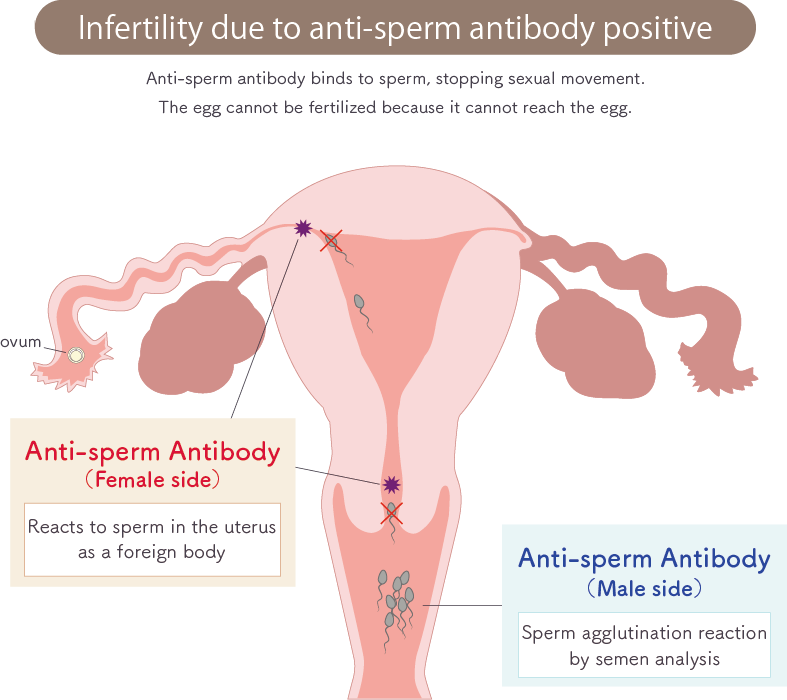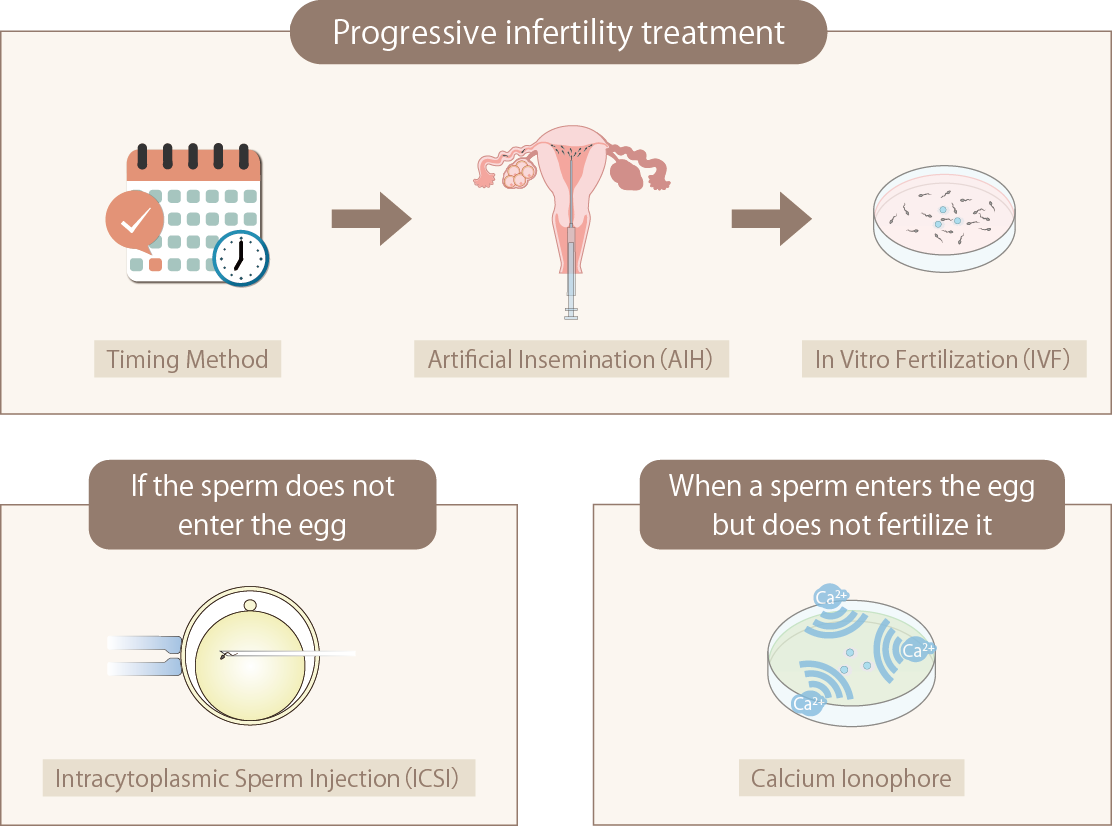
If there is no problem with the sperm but it does not fertilize even with in vitro fertilization, it may be anti-sperm antibodies or fertilization failure.

This is the case when the sperm motility is good, but postcoital examination reveals few motile sperm in the cervix of the uterus.
Sperm ejaculated into the vagina swim to the fallopian tubes, the site of fertilization, but if there are no motile sperm at the entrance to the uterus (cervix) due to cervical mucus insufficiency, the sperm have not reached the egg.
Antibodies are produced by the immune function that works when foreign substances invade the body from the outside, but antibodies called "anti-sperm antibodies" are also produced for sperm, and fertilization may not be possible.
It is well known that the female body produces antibodies against sperm that enter the uterus as a foreign substance, but antibodies can also be produced on the male side, and it is estimated that this is about 3% of the causes of male infertility.
Sperm and blood do not normally mix, but when sperm and blood come into contact due to inflammation or trauma to the testes or seminal ducts, antibodies (antisperm antibodies) may be produced by the autoimmune function.
Sperm motility stops when anti-sperm antibodies bind to sperm, making spontaneous conception difficult.
If sperm agglutination is observed in semen analysis or sperm motility is low, the possibility of infertility due to anti-sperm antibodies is considered.
If antisperm antibodies are positive, spontaneous conception becomes difficult, and IVF or ICSI is performed.

When there are sufficient sperm, but they are not fertilized even by in vitro fertilization, this is called fertilization failure.
Impaired fertilization can be caused by problems with the egg or sperm, or problems with both the egg and sperm.
| Egg problems |
|
| Sperm problems |
|
With timing therapy and AIH (artificial insemination), it is usually not known whether the sperm and egg have met and fertilized.
Usually, after three to six rounds of timing method or AIH, the step up is IVF. However, simply allowing the regulated sperm and egg to meet in vitro may not result in successful fertilization.
Even if there are no abnormalities in HSG (hysterosalpingography), sperm, and ovulation, there are cases in which fertilization cannot be performed.
Fertilization is promoted through timing methods and regular IVF, but ICSI is performed in cases where fertilization is not achieved.
ICSI is a method of inserting a single sperm directly into an egg cell using a fine needle.
Click here for more information on IVF.
ICSI or spontaneous entry of sperm into the egg may not result in fertilization.
Normally, when a sperm enters an egg, it is activated by a factor (a substance called PLCζ) that is released, resulting in fertilization, but for some reason, activation does not occur and fertilization does not occur.
In such cases, calcium ionophores promote an increase in calcium concentration in the egg cells and induce oocyte activation.
